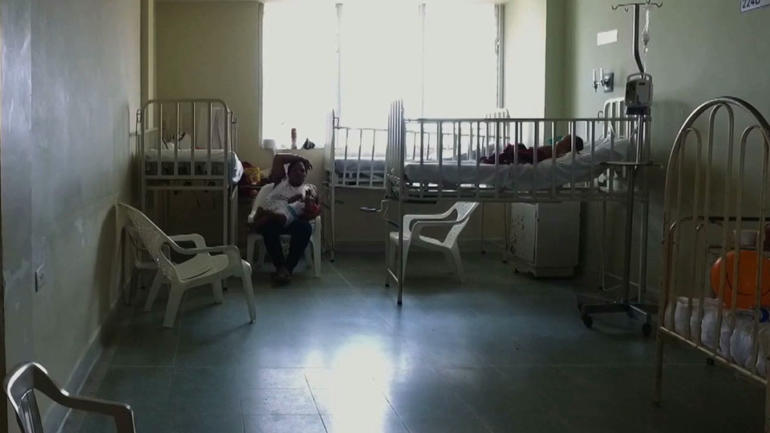In Colombia, corruption has infected the nation’s healthcare program.
The system has lost $160 million from fraud and corruption probes have led to 200 people being arrested.
As CGTN’s Michelle Begue reports, citizens are paying the price as the country confronts the problem.
In the city of Quibdo, the few resources that reach this region, have been lost through corruption, and nowhere is this more evident than at its hospital San Francisco de Asis.
“We have a terrible health system because the money destined for our health gets lost or gets stolen,” said Yesimar Alvarez a former local official municipality of Quibdo.
For decades, Quibdo’s hospital has been a victim of corruption, embezzlement, and poor management practices.
Some health officials say the money lost to corruption has affected more than just the infrastructure, it has debilitated the health services provided.
Last year, managers of the Colombian healthcare provider Coomeva were investigated for deviating resources meant for health services.
Colombia officials say in 2017 the country’s healthcare system lost $160 million in fraud. Authorities have uncovered 18 different ways money was stolen from the health care system across the country.
Dr. Jorge Ivan Ospina, member of the Congressional Health Commission explains that Colombia’s fractured health system allows for corruption to enter. Local and regional governments both private and public healthcare providers all manage money destined for health care and have an opportunity to steal.
“Sometimes the healthcare providers want to pocket more money, so they put restrictions on services. That is another corruption phenomenon; they delay services, restrict opportunities for patients, and they don’t provide the medicine nor equipment,” Dr. Ospina said.
According to the Prosecutor General’s office more than 203 people, including public officials and private contractors, have been involved in cases related to corruption. While those responsible are brought to justice, patients are still suffering.
“It costs more than $2,500 for a transfer by ambulance to another city what family in this poverty-stricken Choco has that money. The insurance should pay for that but they don’t. Health system is just a business now,” Alvarez said.
A business suffering from one of the toughest illnesses, corruption.
 CGTN America
CGTN America

